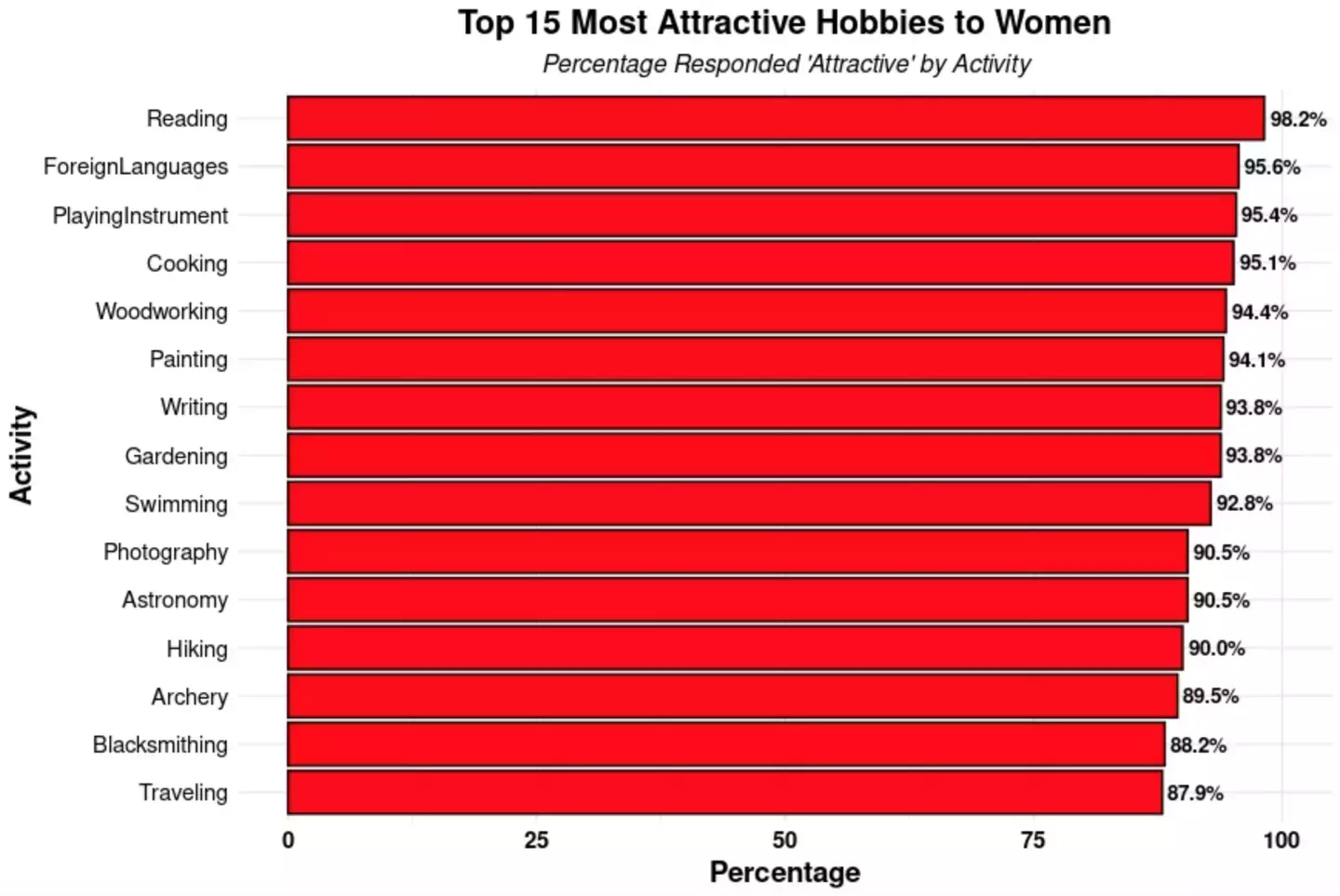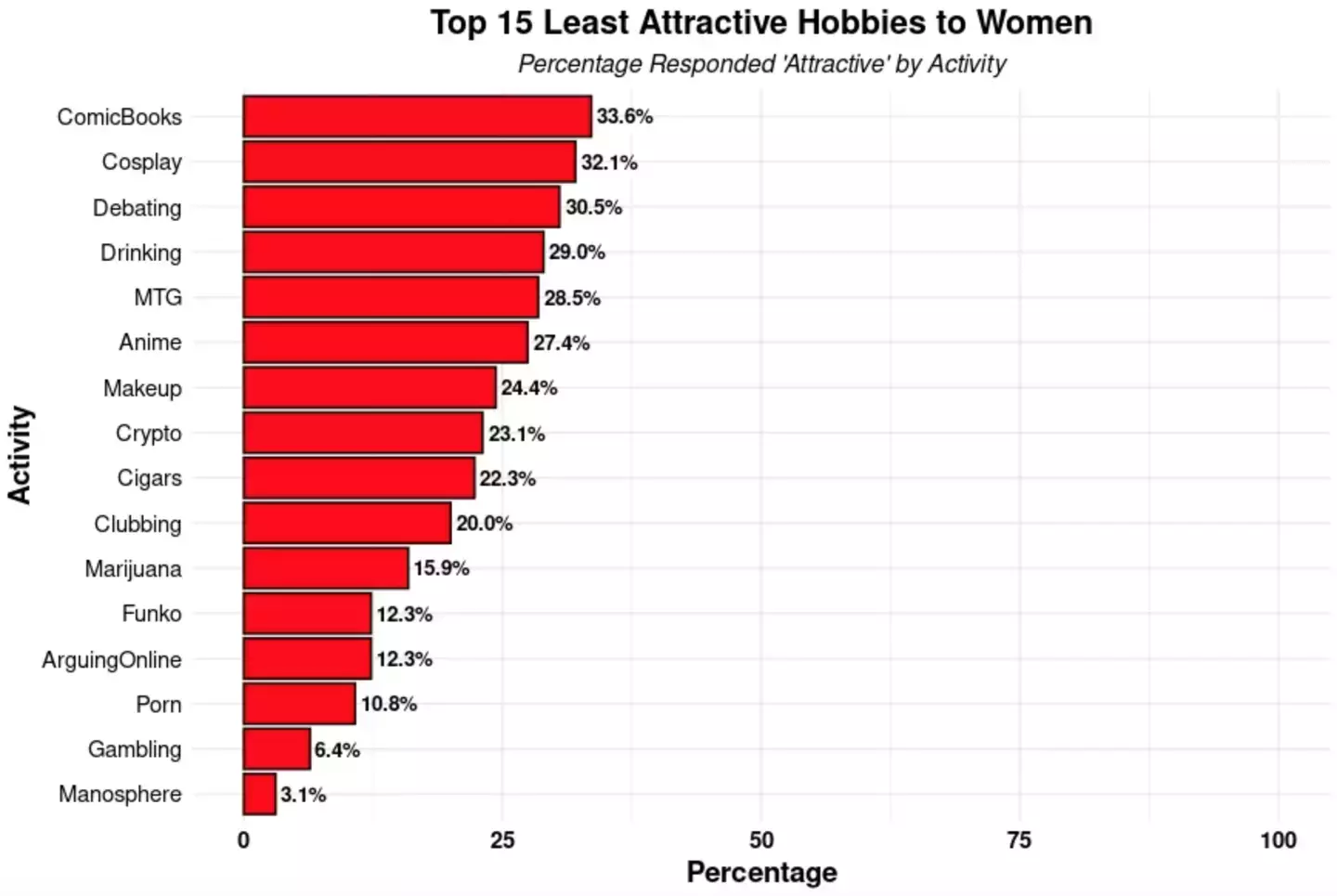As it turns out, it’s not as much as you’d think If you’ve been sat at home wondering whether or not you’re having too much or too little sex, researchers have got the answer.
Depending on your age, sex drive and willingness to get down underneath the sheets, there could be a whole load of factors which determine the amount of sex you’re likely to have.
But there’s now a new report which has shed light on how much your generation and other generations are getting down and dirty.

A study has shed light on how often different generations are having sex (Getty Stock Image)
According to those at the Kinsey Institute at Indiana University, the results are interesting.
So, what do you think it’s going to say? You’re probably not going to be prepared for this, so hold onto your hats.
While we all know that Gen Z (born between 1997 and 2012) is a little different to other gens, namely because they seem to be swearing off what others would call as right of passages, such as getting drunk all of the time as a teenager.
But they are also taking things slower in the bedroom department too.
Maybe it’s because they’re not partying and hooking up with people?

It turns out that Gen Zers are taking things a bit slower in the bedroom (Getty Stock Image)
Anyway, it has been reported that his generations have been engaging in less sex than other generations, with less partners and less commitments.
The report is based on information from over 3,310 people who use the Feeld dating app and it has been collected from those living in 71 different countries.
The age range it has looked into is pretty varied too, as you’ll see data from anyone aged between 18 to 75.
So, you’re about to know what people your grandparents your age is doing with each other.
Drumroll please.
Gen Z typically had had sex three times in the last month, while Millennials (born between 1981 and 1996) and Gen X (born between 1965 and 1980) had sex five times.

Millenials and Gen X seemed to have the most sex (Getty Stock Image)
But Boomers (born between 1946 and 1964) were right on parr with Gen Z when it came to sex, and also reported having sex three times in the last month.
However, just because Gen Z is less likely to sh*g, doesn’t mean that they’re vanilla.
According to Dr Justin Lehmiller, the lead author in the study, 55 percent of Gen Z discovered a new kink since joining the dating app, and 49 percent of Millennials also reported the same thing.
On the lower scale, 33 percent of Gen X said they found new kinks, while 33 percent of Boomers agreed.
The study said: “There are at least two explanations for this. One is simply that older adults have had more time to learn and discover what they enjoy about sex, so they may have already uncovered their kinks.

Many have found new kinks since joining dating apps (Getty Stock Image)
“However, the other is that it also appears to be the case that younger adults today have a greater overall interest in kink than older adults, which may create greater openness to exploring and learning about one’s kinks.”
The study also believes that Boomers and Gen Z are more alike than originally thought.
Dr Lehmiller shared: “Gen Z and Boomers exhibited nearly identical sexual frequencies, suggesting that both the youngest and oldest adults are having the least sex.
“Also, nearly half of Gen Z reported that they were single, compared to only one-fifth of Millennials, Gen X, and Boomers.”
The study went on to say that sexuality and relationships ‘have always existed on a continuum’ which ‘will only evolve and expand further as Gen Z and future generations continue their pursuit of sexual and relational self-discovery’.Featured Image Credit: Getty Stock Images
Topics: Dating trends, Sex and Relationships

Britt Jones
Advert
Advert
Advert

Published 15:23 19 Oct 2024 GMT+1
Study revealed how often couples in a happy relationship have sex
Here’s how much sex you should be having a week, according to a study

If you think you might not be having enough sex, then you came to the right place.
There are plenty of TikTok couples out there who will often show off their ‘perfect’ relationship online.
It makes you wonder if you’re heading in the right direction, or not.
But there’s two things wrong with comparing yourself to strangers on social media.
One, they are just showing you the good bits, and number two, their content is only there to get views.

People statistically have less sex as they get older (Getty Stock Images)
“We have lots of expectations about how relationships are ‘supposed’ to look,” Dr. Logan Levkoff, a PhD specialist in human sexuality, told NBC.
“Many times, this fairy-tale model doesn’t mimic our lives or our realities.”
In terms of how much sex you should be having, the expert says there is no ‘normal’ amount, and it depends on couple to couple.
That being said, a 2015 study used a sample size of 30,000 Americans over 40 years to take a look at how much sex an average person needed to ‘be happy’.
It was determined that having sex with your partner once a week keeps you fulfilled and those who did it more than once weren’t much happier.
Five reasons why you might not be having enough sex

Brits on average have sex 1.1 times in a week (Getty Stock Images)
Stress
We probably don’t realise the impact stress has on day-to-day life, from feeling overwhelmed, irritable and depressed.
Dr Levkoff says all of the above can damper your sex life.
Body insecurity
Dr. Sanam Hafeez, a clinical psychologist from New York, explains: “Body insecurity is a common cause, especially when it’s not only about appearance, but the feeling of being bloated and just not at your best.”
Lacking confidence by being shamed or even embarrassed by the way you think you look can lead to a lack of sexual intimacy.
If you’re struggling, then think about speaking to a professional about your concerns.

People in their late 20s are more likely than any other age group to have regular sex (Getty Stock Images)
Chronic medical issues
“Chronic conditions, like rheumatoid arthritis, pain, fatigue, stiffness, swelling, vaginal dryness and limited function, can also impact libido,” says Levkoff.
Smart devices
Opting to watch the latest TV series, instead of asking your partner how their day went will not be helping.
Taking an interest in your partner can lead to a closer relationship, and a more active sex life.
“The irony of technology is that while it makes us feel intellectually more connected to people, it can isolate us even further from one another when it comes to intimacy,” says Levkoff.
Waning connection
Taking time out for yourselves, rather than prioritising the kids, might be what’s needed.
“Check in throughout the day. A kissy face emoji or a quick message sending love keeps the connection going,” says Hafeez.
“Also, something as simple as walking together after dinner without phones, or dancing, can get good brain chemicals flowing.”
The full study titled ‘Sexual Frequency Predicts Greater Well-Being, But More is Not Always Better’ is available here.Featured Image Credit: Getty Stock Images
Topics: Dating trends, Sex and Relationships, Lifestyle

Anish Vij
Advert
Advert
Advert

Published 10:53 27 Oct 2024 GMT
Research reveals the one popular hobby men can have that’s unattractive according to women
There are many hobbies which might be seen as a bit of a red flag, but it seems one is particularly repulsive

There is one hobby some men are into which is particularly unattractive to women, according to research.
When looking for a partner it’s worth considering what you bring to the table in terms of interests, as well as what you’d be getting up to when you’re apart for a while.
Different romantic partners will have different expectations of how much of your time ought to be occupied with them.
Some folks reckon they should be pretty much joined at the hip with their other half and do everything together, while others want to have time to themselves and hope you’ll have a healthy list of hobbies and interests of your own to keep you occupied.
But it seems not all hobbies are looked upon as favourably and research group Date Psychology decided to ask a group of women what they thought the ‘most and least attractive hobbies’ were.

Many of the ‘most attractive hobbies’ point towards someone who is outdoorsy, creative and thoughtful (Date Psychology)
Apparently women love a partner who reads, while it seems they also really appreciate someone who knows another language, is adept with a musical instrument or can cook for themselves.
There’s a number of other creative and adventurous hobbies which appear to be quite popular among women, so if you’re wanting to get into hobbies which might be looked on well then you should see which among that list takes your fancy.
Of course you should be getting into hobbies because you like to do them, you ought to be putting your own enjoyment and self-fulfilment above attempting to fashion yourself into what you think will be a more appealing version of yourself.
The survey also scoped out the ‘less attractive hobbies’ and it looks like there are a number of nerdy pursuits on there, including being into comic books – which is actually very popular.
Some hobbies are more niche than others, while certain entries on the list are more understandably red flags in general.

It looks like you should probably steer clear of the ‘manosphere’ if you don’t want to be a walking ick to women (Date Psychology)
The research suggests you should probably not try and lecture a date about the merits of cryptocurrency or discuss what sort of porn you’re into, and you should definitely not make a hobby out of arguing with people on the internet.
However, right at the bottom of the list was one hobby which was the most unattractive to the surveyed women and that was being involved in the ‘manosphere’.
If you’re unsure what that is, it’s a bunch of podcasts, websites and forums which say they’re promoting masculinity, but tend to be very heavy on the misogyny.
These places tend to spout some pretty rancid opinions when it comes to women, so it’s no surprise many would consider it an immediate turn-off.
To be honest, steering clear of the manosphere is good life advice even if you’re not trying to appeal to women.Featured Image Credit: Getty Stock Images
Topics: Dating trends, Sex and Relationships

Joe Harker
Advert
Advert
Advert

Published 08:17 16 Dec 2024 GMT
Doctors issue serious warning about popular new ‘snowmanning’ dating trend that could leave you with a nasty STI
Don’t be fooled by this dating trend’s friendly-sounding name

There’s a new dating trend that could leave you with a number of harmful sexually transmitted infections (STIs).
Everyone likes hopping on a viral new trend, especially when it comes to the dating world in 2024, but your health could be at risk if you try this new festive-themed dating trend.
We’ve heard of ‘sledging’ before, but unlike that, which is more to do with social media, this one could lead to you getting gonorrhea or syphilis if you aren’t careful.

A moment of spontaneity in the sheets could cost you dearly (Getty Stock Photo)
It’s called ‘snowmanning’ and don’t be fooled by the name, as it involves a form of ghosting, though only after spending a night in bed together.
What is snowmanning?
Snowmanning gets its friendly-sounding name from the idea of your interest in someone ‘melting away’ in the space of a day, though a recent survey says that 20 percent of Brits have been on the receiving end of it.
This, as well as 80 percent of UK residents admitting to having unprotected sex, could unfortunately lead to an increase in STIs, say experts.
One of these professionals, Dr Crystal Wyllie, at Asda Online Doctor, spoke to The Daily Mail, warned people that those who ‘snowman’ are gone from your life before exchanging contact details.

The trend could leave you with a world of problems, but there’s a simple solution (Getty Stock Photo)
It means they could be passing on an STI from previous flings with no way to contact them, spreading it further.
The medical professional has urged people to use contraception, or take STI tests to stay on the safe side.
How does Christmas change our dating habits?
A poll from the publication revealed of 2,000 Brits, over a third admitted to having casual sex during Christmas week, with 21 percent saying they were ignored the next day.
26 percent of them meet up with a former flame from their past, while 26 percent look for a hookup at work or on a night out.
Worryingly, 15 percent admitted to making impulsive decisions about sex while drinking, which could lead to unplanned pregnancies and possibly STIs from these spontaneous sexcapades.
Dr Wyllie explained: “December is a time of celebration and connection, but it’s important to stay informed about sexual health.
“Planning ahead with contraception, or accessing support after unplanned sexual activity, is key to enjoying the festive season while staying safe.”
This comes at the same time of the decline in condom use, as data reveals that 401,800 STI cases were diagnosed in England last year, an increase of a third from 2020.

You might be left with no way to get in contact with the person that ‘snowmanned’ you (Getty Stock Photo)
Though some say it’s due to a change in trends post-lockdown, with condomless sex surging in popularity, STIs are no joke, and can lead to serious health issues if left untreated.
Chronic pain or pelvic inflammatory disease are a possibility, while STIs such as chlamydia and gonorrhoea can even lead to infertility.
Syphilis could result in neurological or cardiovascular issues as well.
What should you do if you think you might have an STI?
The NHS advises Brits to wait 14 days after a risky sexual encounter before testing for chlamydia and gonorrhoea, though if you’re testing for syphilis or HIV, you should wait four weeks, giving pathogens time to reach detectable levels.
Though they can be easy to treat, you should pay attention to symptoms before getting tested, such as discharge, itchiness, a burning feeling when you pee, and bleeding after sex.
They highlight that wearing a condom is the best way to protect yourself from STIs.Featured Image Credit: Getty Stock Photos
Topics: Health, Sex and Relationships, Dating trends, Community

Joshua Nair
Advert
Advert
Advert

Updated 10:16 30 Nov 2024 GMTPublished 09:16 30 Nov 2024 GMT
Scientist reveals shocking sex appetite difference between men and women after a first date
Evolutionary social psychologist Dr Sarah Hill has explained why women and men see sex differently

A scientist has revealed the surprising difference between men and women when it comes to their ‘appetite for sex’.
Social psychologist Dr Sarah Hill has explained why different genders tend to look at sex differently, from an evolutionary point of view.
The US-based professor appeared on The Diary Of A CEO podcast to talk about the dangers of birth control pills, from ‘sabotaging sex to axing attraction’.

Evolutionary social psychologist Dr Sarah Hill has explained why women and men see sex differently (YouTube/The Diary Of A CEO)
But during the November 25 episode, she also opened up about an old study conducted by the University of Florida involving a male and female model who would purposely approach strangers on campus.
“What the researchers did is they had a male and female model, so a really attractive person approached strangers on campus and they would introduce themselves,” Dr Hill said.
“They would just say ‘hello, I’ve been noticing you around campus and find you very attractive’.
“And after they made this introduction, they would then follow this with one of three requests.

The Diary Of A CEO host Steven Bartlett (YouTube/The Diary Of A CEO)
“It would either be ‘would you like to go on a date with me, would you like to go back to my apartment with me, or would you like to go and have sex with me’.”
The study found was that for both men and women, 50 percent agreed to the date.
But what they discovered was that very few women said ‘yes’ to going back to the apartment with that person.
“And a full zero percent of women said that they would go back and have sex with the person,” Dr Hill continued.
“This isn’t what they found for men, right?
“For men, what they found was that men were more likely to agree to go back to somebody’s apartment with them than they were to the date.Play
“And men were most likely to agree to just have sex, almost 80 percent of men agreed, ‘Yeah I would love to go and have sex with you,’ and the men who said ‘no’, usually were in a relationship.”
Dr Hill noted that women are less reluctant to have sex with men because of the evolutionary fact that they can get pregnant, leaving ‘a minimum investment of nine months time in pregnancy and then subsequent time spent breastfeeding’.
“So for women who were sexually opportunistic, in other words, willing to consent to sex without strings or investment, women would have been penalised for that because throughout most of our evolutionary history that could result in a pregnancy,” she added.
Whereas men who ‘consent to sex without commitment, that’s an evolutionary win’.